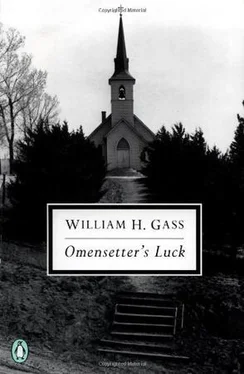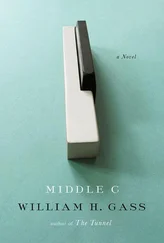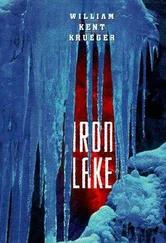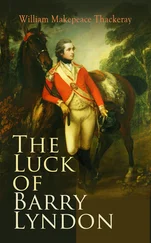Henry loved to tell of everything he saw when he passed Omensetter's house, though he was cowardly and quiet about the fox, and neither he nor his listeners ever thought how strange it was they took such interest in the smallest things their newest neighbor did, for Omensetter cast an interest like a shade. It was as though one could, by knowing when his beans went in or when he cut his firewood for washing, hoed, or simply walked a morning in the oak and maple woods like a tree among the trees himself, learn his secret, whatever his secret was, since it must somehow be the sum of these small things all grown together, for as Doctor Orcutt was so fond of pointing out, every measle was a sign of the disease, or as Mat Watson said, every turn of wind or rift of cloud was a parcel of the acreage of weather.
Henry asked him how he knew it was a boy, for girls, he said, were also known to kick, and Edna Hoxie, thin enough, she said, to crawl inside and pull a fat one out, stopped by to offer up her service for the time. But Omensetter said he knew. He said that birthing would be easy for a boy who'd learned to crawl already. Don't be disappointed, Brackett; Olus Knox has three, Henry said. Each time his wife conceived he hoped like you, and he has three. He finds it hard without a boy, with three who'll trade his name away when now she's past her time. It could be just the same with you. I hope not… but it could be just the same. You shouldn't count too much on what comes out of her this fall or figure from how hard the baby kicks or from how high it rides. Still Omensetter laughed. He said he knew. He'd read the signs.
At first the wound was merely sore and then the arm was stiff. Get Doctor Orcutt for the love of God, Henry said, and slunk to bed. There the stiffness spread into the neck. Lucy learned in Gilean that Orcutt was with Decius Clark at the bottom of the county. When Watson and Omensetter arrived, Henry had ceased to speak and his face grew tight as they watched. A shotgun wound? Then slippery elm, I think, Mat said. Lucy wept, running from room to room with balls of cloth in her arms. The lips drew back from the teeth, the eyelids flattened, Opium, I think, Mat said. The body bent.
The room should be dark, I think, Mat said. Lucy stumbled up and down the stairs and the jaws at last completely locked. She was drawn in by the wheeze and when Omenset ter asked her suddenly: have you any beets? the rags rolled out of her arms. The Reverend Jethro Furber, his twisted figure like a knotted string, was murmuring, immure him, cure him or immure him — some such thing — if he were really in the corner like a clothes tree, was he? was it Watson where the walls were willowing? Matthew drew off Lucy to another room. How easily he saw them. Godhead hid from him His holy farse. Immure him, Fermy murmuring, cure him or immure him. Through the withering wall he watched her try to kiss him when he helped her on the bed; tear wildly at her clothes. All I lack is a little luck and I'll lick that lock, who said? Mat then tiptoed to the bellowing hall and shut himself in its largest closet. Around him linens, towels, and female things were shelved.
Omensetter made a poultice of mashed raw red beet and bound it to the wound with rags and to the palms of the hands. Henry felt his sight fail as his lips yawned and air strenuously pushed itself between his teeth. Mat observed them from the doorway, apparently calm; but there seemed to be a button broken on his shirt and a tear in his sleeve. Then his body melted. It's up to Henry and the lockjaw now, Omensetter said; it's just between them. I'll stay, Mat said, he needs some company. But Furber hung like a drapery demonstrating him, his hollow — all could see it, billowing thinly, the wall gauze, and God's laws flickering. Omenset-ter's hands were stained with beet. He doesn't care, he said, his body also dwindling. You loosened her clothing, good, Henry heard Omensetter say as his footsteps faded on the stairs, now she's asleep. Mat held to Henry's hand while Henry whistled steadily like steam.
Orcutt came by evening, tore the poultice off the wound, gave opium and aconite, forced lobelia and capsicum into the mouth, stared at the bandaged palms but did not touch the wrappings, waited for vomiting. Watson said to Henry afterward that in his opinion the jaw had already begun to soften, and he was not surprised when the vomiting began. I'd have sworn it was hopeless, Doctor Orcutt said. The Reverend Jethro Furber came to pray and the jaw was loose by morning. Edna Hoxie, midwife, brazen, asked Omensetter for the recipe and bragged to everyone how easily she'd got it.
That Omensetter had a secret no one doubted now. Gossip was continuous, opinion split, the atmosphere political. One would have thought it France. Henry's own salvation was the central thing, and Henry was frequently vexed to the point of tears, weak as he still was, by the constant queries, the noisy quarrels, the wild conjectures of his friends. Nothing escaped them: chance was reperceived as calculation, distant possibilities were carried briskly into likelihood, the flimsiest hypotheses spun into woolens for a tapestry, and each conclusion was communicated to the town like a disease. At first consigned by nearly everyone to God and so to the faith of Reverend Furber, though always by a smaller group to Science and hence to the skill of Doctor Orcutt, the cur — except for a scattered few who insisted upon the will and constitution of Henry himself — was now almost universally awarded to the beet root poultice and the luck of Brackett Omensetter. But what did this amount to? This credited the cure to… what? Edna Hoxie had an increase of trade, though Maggie Scanlon — unwedded, large — scoffed at the question. Don't he always get what he wants, she said. He's happy, ain't he, the sonofabitch. I wish to god I was.
For Henry his illness was a joy and agony that still went on. Whole days it rained continually and water spilled out of dry containers. He would sit in the sun with a blanket on his knees and feel the rain come down on the stiff summer leaves and fly from the dusty spouts. He begged the fox's pardon constantly, as weak and palsied in his chair, as loose from his will, as he'd been during the first days of his recovery. His arm would dart out, seizing a flood of light in its fist. Well, he'd exclaim in surprise, it still seems to be raining. Lucy would shriek at him, the sun drum on his chest. His eye entered everything like a needle even yet — penetrated, looped, and then emerged — and he hung these pictures on a string like beads around his neck. For hours he fingered the air obscenely, and when he moved, he felt they clicked. He would say to his wife: here's your vulva, it's next to the nose of the beagle; or he'd say: here's your blood, dark as wet bark; or he'd say: here are the stools your bowels are shaping; on and on, until she struck him.
Cruelty brought no relief, as sight did not, and yet he sometimes thought his pain might simply be the pain of his shedding, since it often seemed that he was sloughing like a snake the skins of all his seasons; his white fats and red flesh were lost in a luminous wash. Sunshine lapped at him, rose over him, and soon there were pieces of him drifting off — his head like a hat, legs like logs. Then gently he toweled his bones until they shone. They made a fair tree; they weren't so bad. Henry hadn't been prepared for anyone like Omensetter. He'd been content to believe that he would always live with usual men in a usual world; but he'd lived with himself all these years like a stranger — and with everybody else. So on these shining armatures he fancied that he shaped a fine new unstreaked clay through which life lifted eagerly like moisture warming toward its heat. There was no mistaking Omensetter's likeness; Henry was newborn in that waltzing body now; he had joined it as you join a river swimming; surely Lucy must have seen… but he didn't mind if she had. Perceptions no longer pierced his eyes — his needles returning; instead, he poured out giddily.
Читать дальше












![William Frith - John Leech, His Life and Work, Vol. 2 [of 2]](/books/748201/william-frith-john-leech-his-life-and-work-vol-thumb.webp)